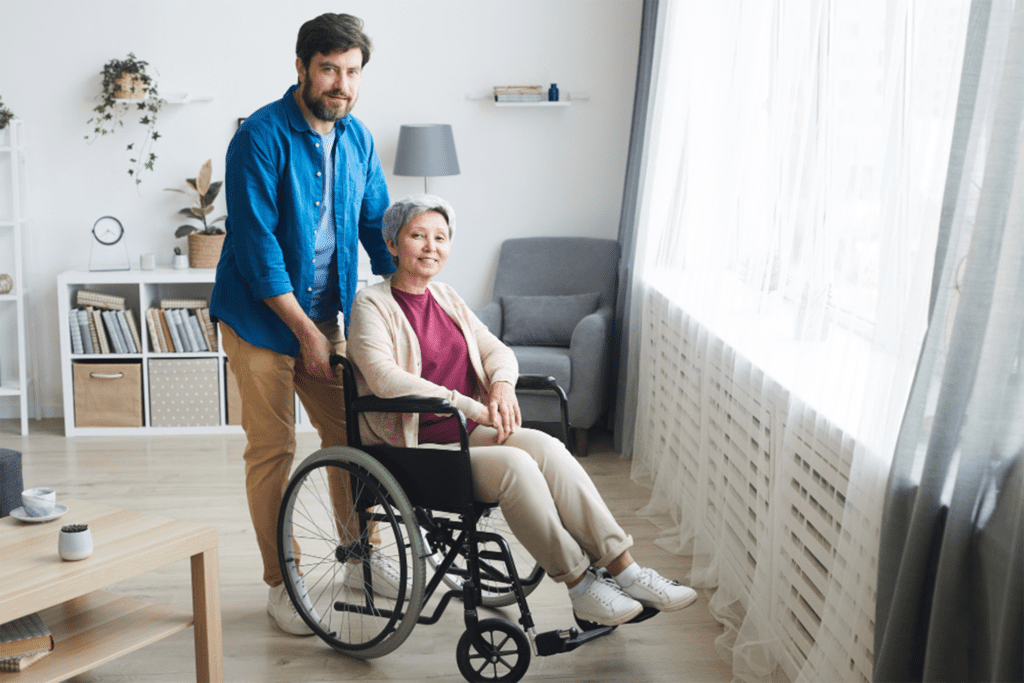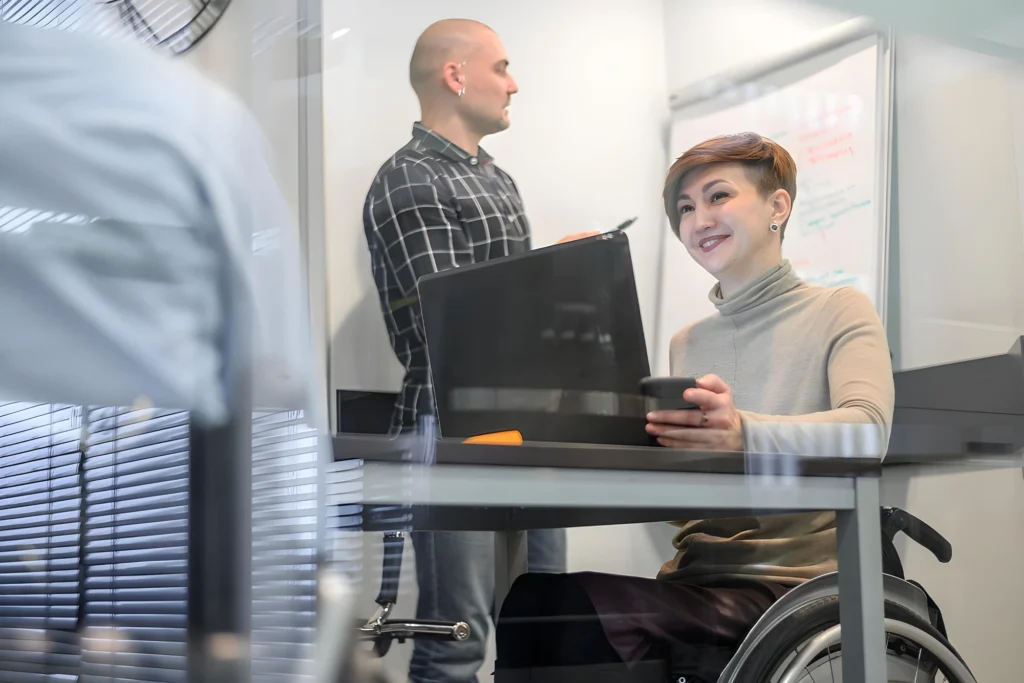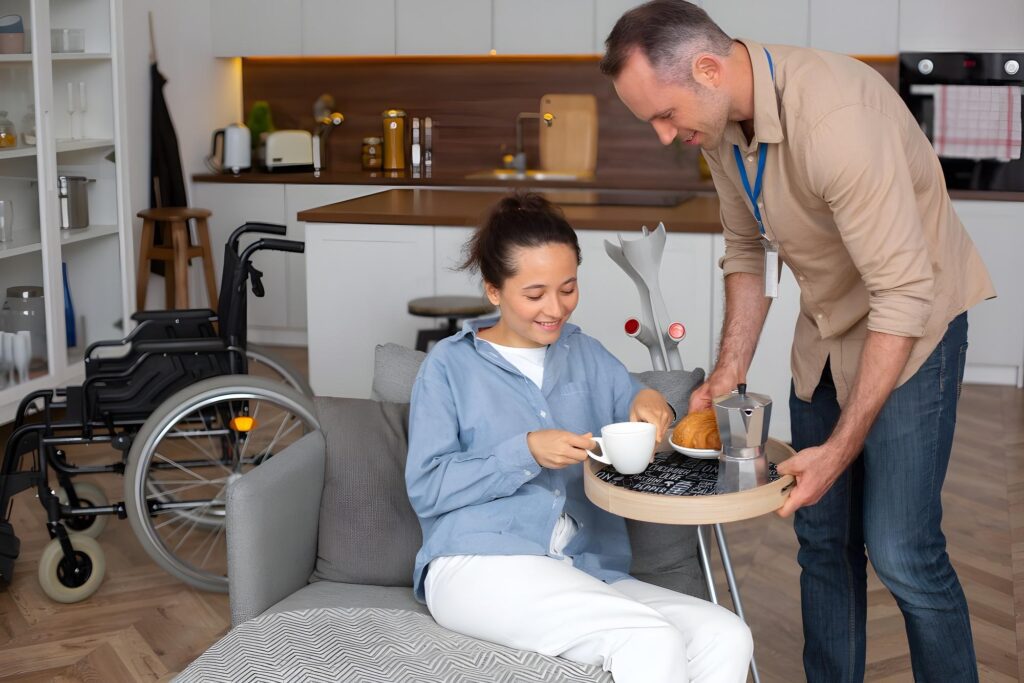Blog
Your blog category
The Future of Disability Support Innovations
The landscape of disability support is evolving rapidly, driven by advancements in technology, changing societal attitudes, and a growing emphasis on inclusion and empowerment. At Desire Care, we are committed to staying at the forefront of these changes, ensuring that our participants receive the most innovative and effective support possible. Here’s a look at some of the key trends and innovations shaping the future of disability support: 1. Technology-Driven Solutions Technology is revolutionizing the way disability support is delivered. From assistive devices to smart home systems, innovations are making daily life more accessible and independent for individuals with disabilities. Examples include: 2. Person-Centered Approaches The future of disability support is increasingly focused on individualized care. Person-centered planning ensures that support services are tailored to the unique goals, preferences, and needs of each participant. This approach empowers individuals to take control of their lives and make informed decisions about their care. 3. Increased Focus on Mental Health Mental health is becoming a priority in disability support. Innovative programs are being developed to address the emotional and psychological well-being of participants, including: 4. Community Integration and Inclusion The future of disability support emphasizes creating inclusive communities where individuals with disabilities can fully participate. This includes: 5. Data-Driven Decision Making Data analytics is playing a growing role in disability support. By collecting and analyzing data, providers can: 6. Remote and Flexible Support Options The COVID-19 pandemic accelerated the adoption of remote support services, and this trend is here to stay. Telehealth, online training, and virtual community programs provide flexible options for participants, especially those in remote or underserved areas. 7. Collaborative Partnerships The future of disability support relies on collaboration between providers, governments, communities, and technology companies. By working together, stakeholders can share resources, knowledge, and best practices to create a more inclusive society. 8. Focus on Lifelong Learning Skill development and education will continue to be a priority, with innovative programs designed to help participants adapt to changing environments and technologies. Lifelong learning ensures that individuals with disabilities can thrive in an ever-evolving world.
Creative Ways to Foster Skill Development
At Desire Care, we believe that skill development is a cornerstone of empowerment and independence for individuals with disabilities. Through innovative and creative approaches, we help NDIS participants build the skills they need to achieve their goals, engage with their communities, and lead fulfilling lives. Here are some of the ways we foster skill development in unique and impactful ways: 1. Interactive Workshops and Training Programs We design hands-on workshops that cater to a wide range of interests and abilities. From cooking classes to art workshops, these programs provide practical skills while encouraging creativity and social interaction. 2. Technology-Driven Learning Leveraging technology, we offer digital tools and apps that make learning accessible and engaging. Whether it’s through online courses, virtual reality simulations, or assistive devices, technology opens up new avenues for skill development. 3. Community-Based Projects We involve participants in community projects that allow them to apply their skills in real-world settings. Whether it’s gardening, volunteering, or organizing events, these activities build confidence and a sense of accomplishment. 4. Personalized Skill-Building Plans Every individual has unique strengths and goals. We work closely with participants to create tailored skill development plans that align with their aspirations, whether it’s learning to use public transport, improving communication skills, or gaining employment-ready skills. 5. Creative Arts and Expression Art, music, and drama are powerful tools for skill development. Our creative arts programs help participants express themselves, develop fine motor skills, and build social connections in a supportive environment. 6. Life Skills Training We offer practical life skills training, such as budgeting, meal planning, and time management, to help participants navigate daily life with confidence and independence. 7. Mentorship and Peer Support Connecting participants with mentors or peers who have similar experiences can be incredibly motivating. Our mentorship programs provide guidance, encouragement, and a sense of community. 8. Sports and Physical Activities Physical activities like yoga, swimming, or team sports not only improve physical health but also teach teamwork, discipline, and perseverance. 9. Gamification of Learning We use gamification techniques to make skill development fun and engaging. By turning learning into a game, participants are motivated to achieve their goals while enjoying the process. 10. Collaborative Learning Environments We create spaces where participants can learn from each other. Group activities and collaborative projects encourage teamwork, problem-solving, and the sharing of ideas. The Impact of Skill Development When individuals develop new skills, the benefits extend far beyond the immediate learning experience. Skill development:
Desire Care’s Vision for a Connected Community
At Desire Care, we believe that a strong, connected community is the foundation for a more inclusive and supportive society. As a registered NDIS provider, our vision is to create a world where individuals with disabilities are not only included but actively empowered to participate, contribute, and thrive within their communities. What Does a Connected Community Look Like? A connected community is one where:
The Role of Innovation in Disability Support
In today’s rapidly evolving world, innovation plays a crucial role in transforming the way disability support services are delivered. At Desire Care, we embrace innovative approaches to ensure that NDIS participants receive the highest quality of care and support. By leveraging creativity, technology, and forward-thinking strategies, we aim to empower individuals with disabilities to lead more independent, fulfilling lives. Why Innovation Matters in Disability Support Innovation is not just about adopting new technologies; it’s about finding better ways to solve challenges, improve accessibility, and enhance the quality of life for individuals with disabilities. In the context of disability support, innovation can:
Empowering Lives Through NDIS Support
Empowering Lives Through NDIS Support At Desire Care, we believe that every individual deserves the opportunity to live a fulfilling and independent life. As a registered NDIS provider, we are committed to empowering participants through innovative and personalized support services. Our mission is to help individuals with disabilities achieve their goals, enhance their quality of life, and actively participate in their communities. What is the NDIS? The National Disability Insurance Scheme (NDIS) is a transformative initiative designed to provide tailored support to Australians living with disabilities. It focuses on enabling participants to access the services and resources they need to thrive, whether it’s through daily living support, community participation, or skill development.
Hello world!
Welcome to WordPress. This is your first post. Edit or delete it, then start writing!






